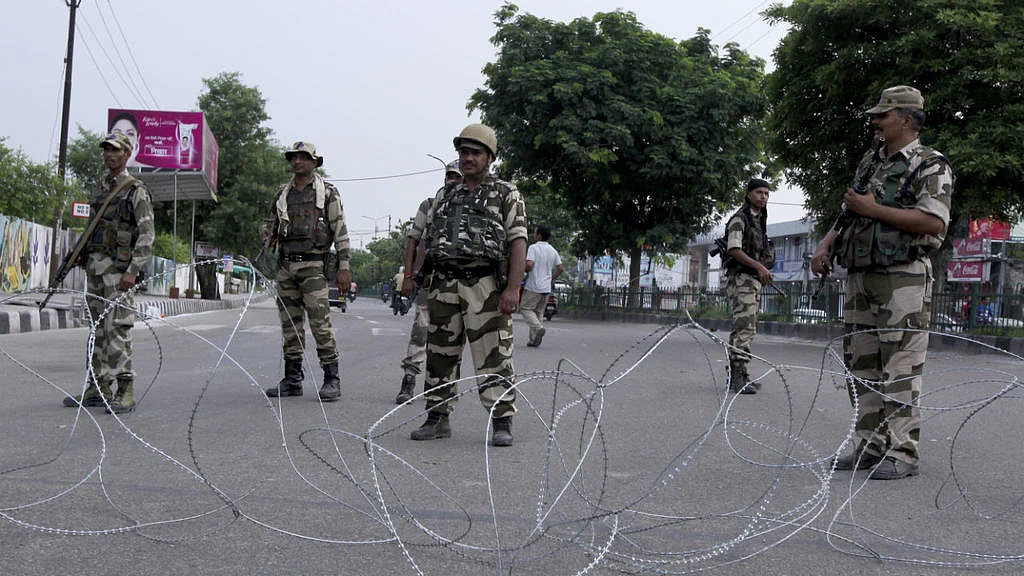Kashmir: So what, if the Valley is lost?
As we celebrate 150 years of Mahatma Gandhi’s birth, Kashmir appears to mock at our double standards and hypocrisy

Back in the nineties I was yet to visit J & K. But I do remember a BJP leader asking testily, “What huge difference will it make to India if the Kashmir Valley goes to Pakistan?” He thought India was wasting its time, money and energy in keeping the Valley under control and that it was not worth it. That was a time of turmoil in the Valley, when Pandits were fleeing or, as some people wrote even then, were encouraged to flee.
Why deploy so much security there, he had asked. The security personnel, he had argued, also went through unimaginable stress and many were getting killed. The money spent in supporting the large military presence, he suggested, was fattening a few Kashmiri politicians and businessmen. “Films can be shot at many other places in India, Bombay will not miss Srinagar. We should just let go of the Valley. It will be good riddance,” he had stated.
My own view at the time was somewhat similar. If we failed to win the hearts and minds of the people in 15, 20 or 30 years, I felt, there was no justification to hold on to territory. I was of course naïve, had done no reading and had no understanding of the issues and the complexities involved. BJP was also not in power and it was easy for the BJP leader to make sweeping statements while sitting a thousand kilometer away from Ground Zero.
But something that my elder brother had stated in 1968 had remained in the back of my mind. He had gone to Kashmir as part of a college group and returned disturbed. He felt India had alienated the people and blamed the massive presence of security forces for it. He recalled an incident. They had stopped the bus for a Kahwa break and saw a bunch of Jawans also sipping Kahwa. The Jawans were from the mainland, from Bihar and UP and felt home sick seeing so many students from ‘home’ appear suddenly around them. They exchanged pleasantries and in no time conversation flowed.
At some point, a student asked them if they were not scared living among hostile people. And one of the jawans derisively made a sweep of his gun, pointing at the group of local men around them. “These Pakistanis,” he had exclaimed, pointing at the civilians before grinning and assuring the students that they could take care of them. I remember my brother agitatedly saying,“if the army men believe that they are sitting in enemy territory, how can Kashmir ever be ‘Indian’ ?”
When I moved to Chandigarh and started overseeing the bureax in J & K, I heard almost similar stories. Kashmiris were corrupt and rich; they had property in Jammu and was lording over ‘Indians’. They needed to be taught a lesson, I heard over and over again. I recall feeling uneasy because I myself found Kashmiris friendly and focused on their business and profession. They were resigned to the presence of the military, check posts, interrogations, encounters and militancy. A few shared their hopes and fears. Children and women, they told me, were the worst victims and though the trauma they went through was known, there was not much they could do about it.
As for corruption, there was no evidence that it was higher in Kashmir than in the rest of the country or in the North-East. I remembered what a few officers of MI (Military Intelligence) had confided about some of the honest army commanders ordering contractors to fell trees and get the timber delivered to their home. I also recalled an army jawan from a southern state gleefully narrating how corrupt some of the officers were and how some even stole the diesel meant for lighting the floodlights on the Line of Control. There were cases which ended up in Courts of Inquiry with allegations of misdemeanor by the rank and file.
Almost a month after the lockdown in Kashmir, these memories come flooding back. The Government evidently believes that it can control the situation. All Governments suffer from such delusions. I recall a former Director of Intelligence Bureau telling me that there would never be a tribal uprising in India because history showed that tribals kept quiet for 30 years after a brutal incident of police firing mowing down a score or more Adivasis. That is the arrogance that Governments, from Beijing to New Delhi, suffer from.
But it is clear that Kashmir will never be the same again. And no matter how long it takes, I see the Valley drifting away. Will History judge Modi and Shah charitably? Or will they be pilloried for a historic blunder?
But then, as the BJP leader had put it a quarter of a century ago, what difference would it make if the Valley is lost? That is the point to ponder.
To my unsophisticated mind, there seem three outcomes of the standoff. Independence and Secession are far fetched and if at all feasible, could be a bloody and long drawn out affair. The other possibility is for Kashmiris to wrest back their honour, dignity and bargaining power through peaceful means. Perhaps this will be the beginning of a more federal India with all states enjoying more power ?
Follow us on: Facebook, Twitter, Google News, Instagram
Join our official telegram channel (@nationalherald) and stay updated with the latest headlines